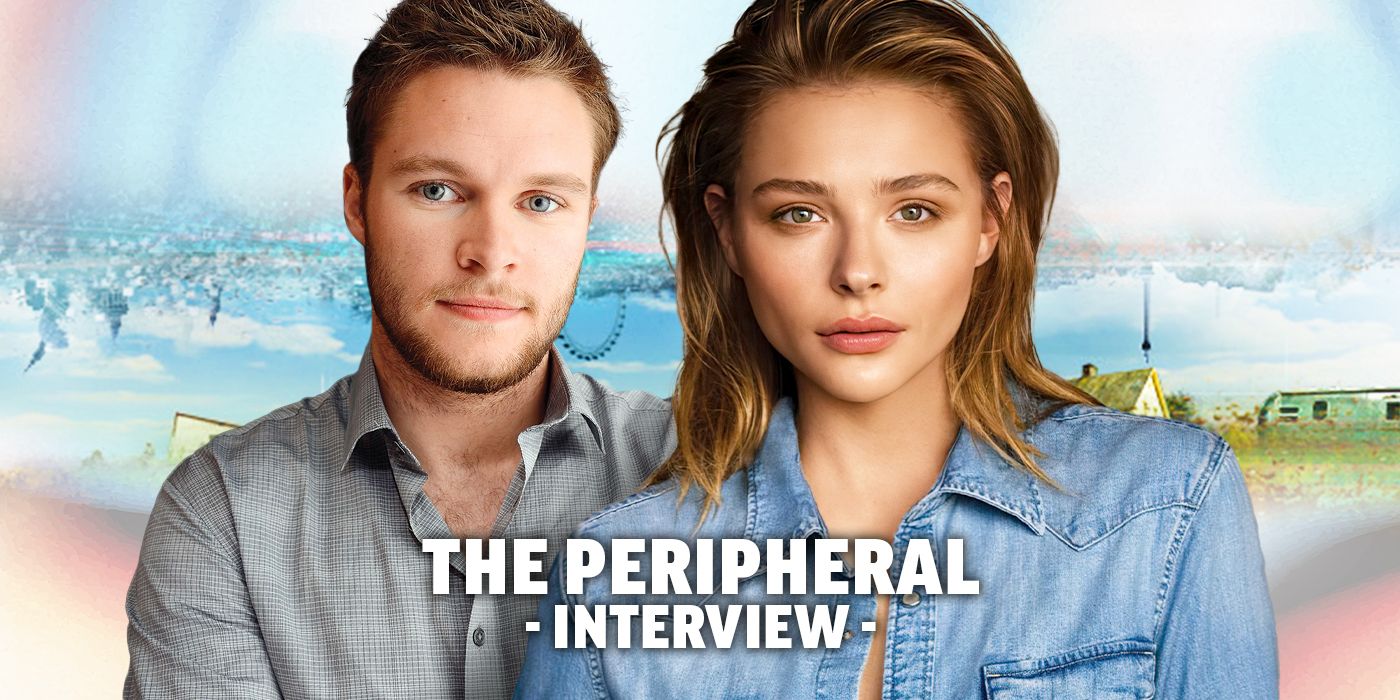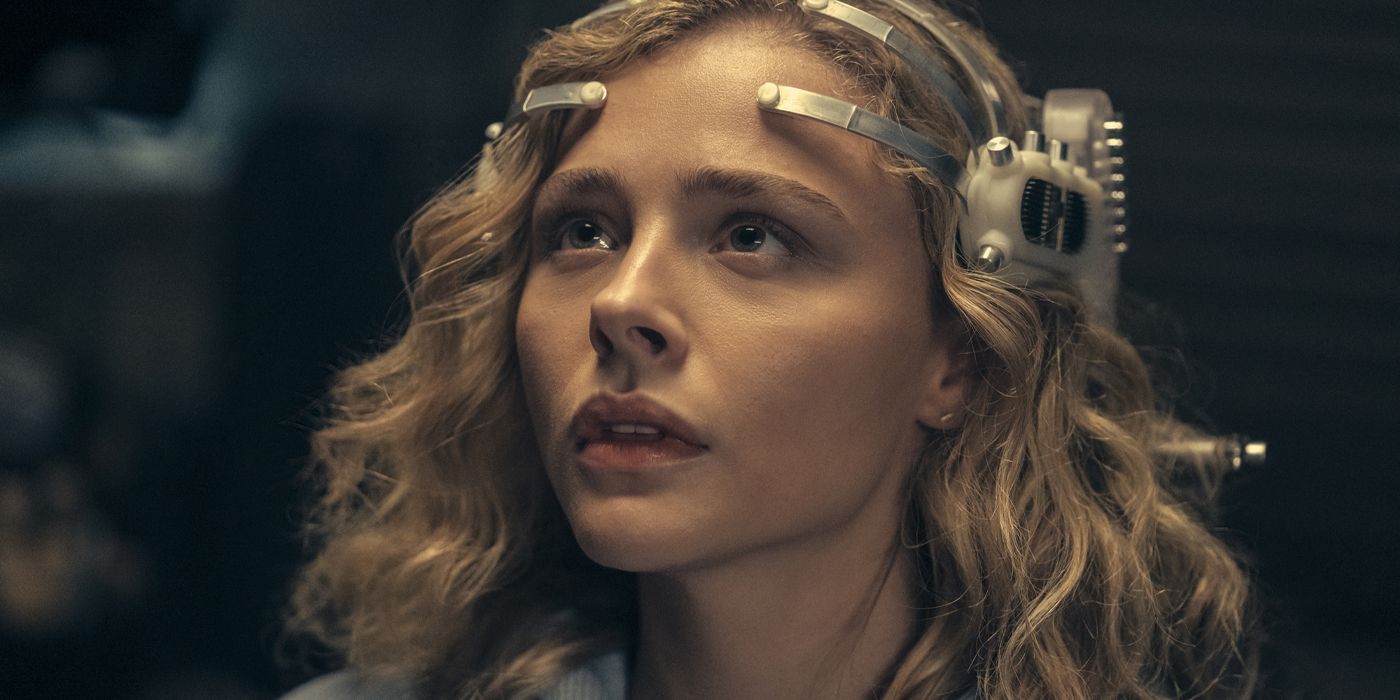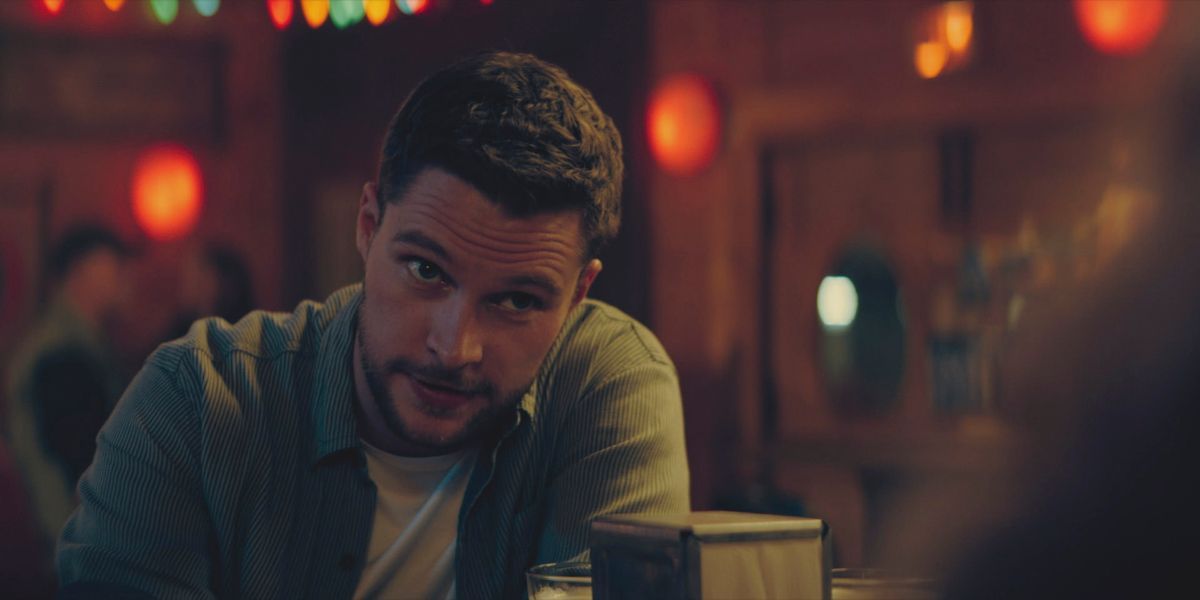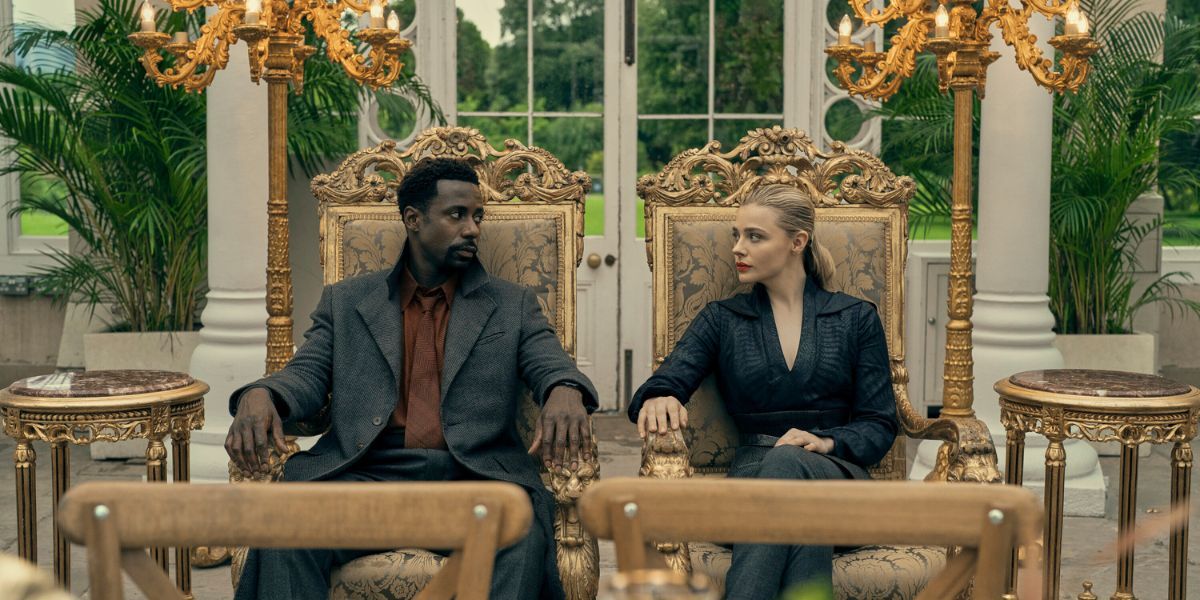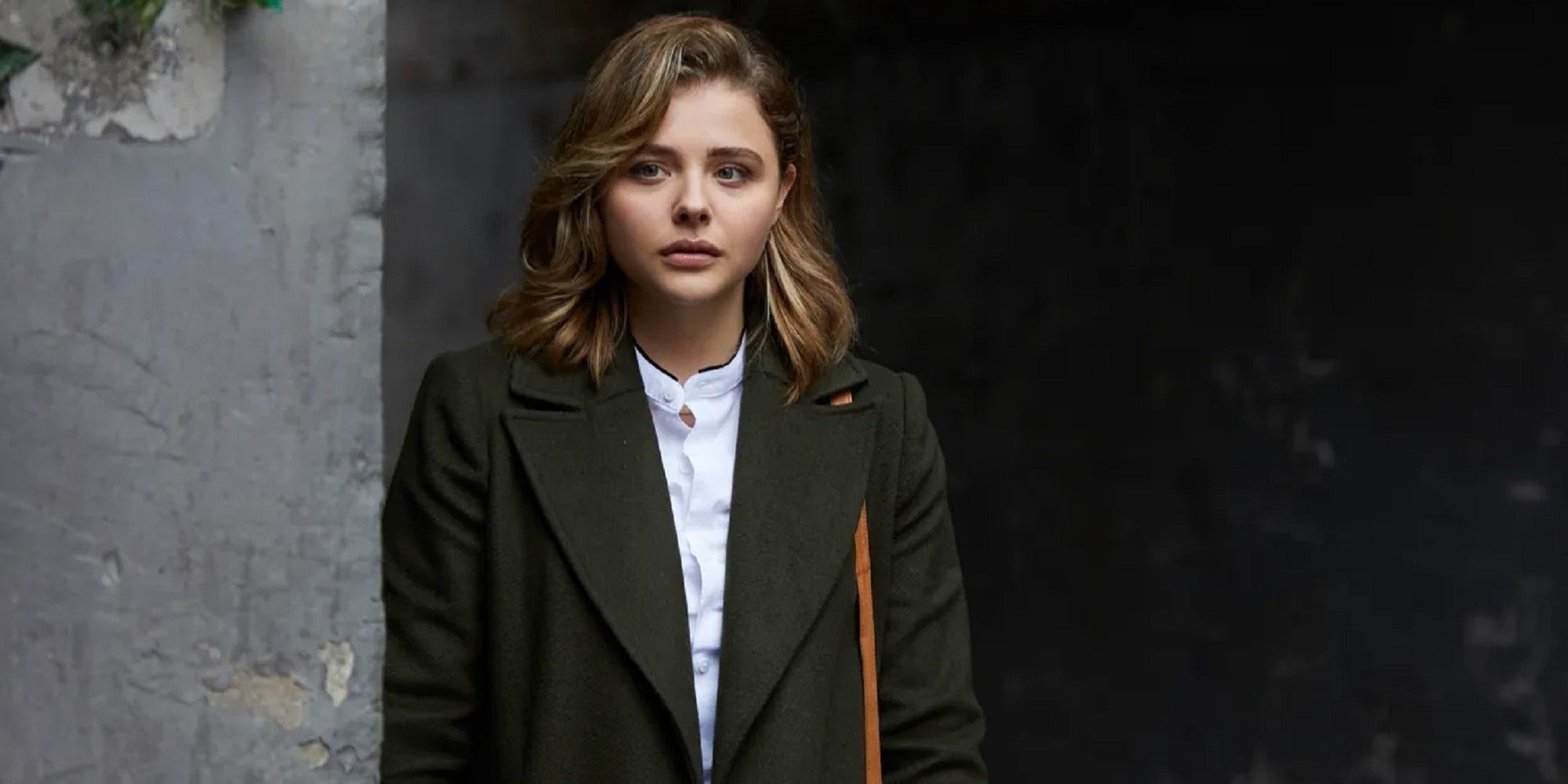[Editor's note: The following contains some spoilers for The Peripheral.]Based on the novel by William Gibson, created for television by Scott B. Smith, and executive produced by Jonathan Nolan and Lisa Joy, the Amazon Studios original series The Peripheral follows Flynne Fisher (Chloë Grace Moretz) and her brother Burton (Jack Reynor) in their life in small town America in 2032, as they venture deeper and further into a simulation set in post-apocalyptic future London. While Flynne uncovers the mystery of the Sim and the dangerous information it contains, she realizes that she must find a way to protect herself and her family before it’s too late.
During this interview with Collider, co-stars Moretz and Reynor talked about telling a story with such a high concept that’s still grounded in humanity, why this is a sci-fi lover’s dream, going into this shoot with the full knowledge of the story they were telling, the importance of being sure to follow through on the world rules that you establish, whether they would try out this kind of technology in real life, the incredible fight sequences, and what it was like to have each other throughout this production.
Collider: Chloë, you’ve previously told me that this was your first foray into television. Was that intentional? Were you actively pursuing something that you could do for a longer period of time? What made this the project and the right time?
CHLOË GRACE MORETZ: I really wanted to jump into television, yeah, but I was also trepidatious, in the sense that I knew the big undertaking that was television. It’s six, seven, or eight months, all-in, and you’re living with a character, every single day. So, I wanted to choose a role that I really wanted to sink my teeth into and that had the expanse to do so, as well as a team behind the scenes that was supportive of that and would be worth spending that much time together. I think this was a project that had all those things. Jonathan Nolan and Lisa Joy, and the story originating from William Gibson, that’s already a sci-fi lover’s dream. And then, being able to play a character like Flynne Fisher, who, to be honest, felt very similar to who I am in real life, but then is thrust into really intricate situations that she has to navigate her way out of, as well as the physical aspect with the action sequences and stuff, I felt like it ticked all the boxes. I felt really lucky and jumped right in.
Jack, what about for you? There’s so much going on with this story and with these characters. Was there a specific aspect that interested you, or was it just the whole thing, in general?
REYNOR: I was really interested in being part of a show that had such an incredibly high concept, in terms of the speculative fiction aspect of it, but that was grounded so much in humanity. A lot of sci-fi can be really cold and sterile, and I find that, with William Gibson’s work, and with this in particular, there’s this great relationship at the heart of the show, between Flynne and her brother Burton, that really grounds the show. No matter how fantastical it gets and no matter how far we go down the road of the sci-fi, we have that relationship to ground us, as an audience, and to hold onto. That really is gonna give the audience the opportunity to invest themselves, so that was very exciting to me. I just saw it as an opportunity for something that’s really broad and really exciting.
This is based on a book, but adaptations change to fit the medium. How much information did you guys go into this with? Did you go into the shoot knowing the full story? Did you not have all of it?
MORETZ: We both went in knowing the full story. Before my meeting with Jonah [Nolan] and Lisa [Joy], before they even let me read episode one or two, I had read the full book and had the knowledge of it. The original story is very dense. William really built out every intricacy of this world and the rules of the world, which I find is really important. Going into making the project, it was really important to have all that information. That way, we really understood the scope and the rules. With sci-fi, I hate it when people create rules, and then they break their own rules, all throughout the seasons. That pisses me off, so much. I think it really helped to be able to reference that constantly.
REYNOR: We both went into it, having read the book. What’s great about William Gibson is that he writes for a future that’s just around the corner, so a lot of the technology that’s in the book, are things that we’ve already seen come to pass. I think that the show has done a good job of pushing it out a little bit further, to 2032. This world is something that’s really just upon us. The show is really expansive, and Jonah and Lisa, and the writers, and (director) Vincenzo [Natali], have done a great job of creating these new strands and opening it out into a range of possibilities and potentialities. That’s really exciting.
Before your characters really know the full extent of what’s happening, you can see something appealing about having this experience that they’re having, of being someone else, or at least pretending to be someone else. If this kind of technology were real, would either of you want to try it, or do you normally steer clear of that sort of thing?
MORETZ: Oh, I would jump in. I love RPG. I play Final Fantasy a bunch. For me, role play games are so fun. I would totally jump into simulation stuff like that, 100%. I think that’s why aspects of the Metaverse and Sandbox, and stuff like that, are really exciting. The future of augmented reality, or virtual reality, and how deep that can go is a little spooky, but I’m 100% going to buy all the gear and try it out.
REYNOR: I definitely would try out the technology, if it existed, that’s for sure. One of the really interesting things in the show for me, and one of the things that I was really looking forward to being able to play on screen, was this whole sequence where Flynne enters Burton’s peripheral. It’s an opportunity for her to just explore what the world is like as her brother, in a way. Chloe and I hadn’t done a lot of prep together before we came in to do the show. We had talked about that stuff, and we had some fun conversations about how Chloe could inform what I did in those scenes with the character, and for her to have some of the authorship of that. That was a lot of fun. That was a cool thing to get to play.
Chloë, what was this like, as an acting experience? You’re playing Flynne in her world, but you’re also playing the peripheral when no one is in her, and you’re playing the peripheral when other people are in her. What was all of that like to figure out?
MORETZ: It was a total dream. We even had some further layers in there, which I don’t know if they actually made it into the story, with Ash. I really wanted to play with the physicality of it and the vocality of that. Things like accent and mannerisms are learned behaviors. Your accent changes based on where you grew up because that’s what you were surrounded by as a kid. And your mannerisms are very much susceptible to who you’ve been around your whole life. I really wanted to play with those intricacies. Honestly, one thing I would reference within that is Westworld. I really gleaned a lot from what the actors did in that with how they would manipulate their performances, where sometimes you would not recognize the person that you’ve been watching for four or five episodes, but it’s the same actor. I was like, “I really wanna go there with that.” The stuff that was as simple as the peripheral turning off and being disconnected, and then coming into AI, I was like, “The AI wouldn’t have a southern accent.” We decided to do pleasant mode, which is when they’re operating me to make people feel more comfortable. In Westworld, when they turn off, they’re just totally sold as dolls. I was like, “No, no, she would totally be interactive and just glancing at people.”
Jack, what was it like to do at the fight scene in the first episode, in the car with the person who has the all-white face? Were you working with a person in a costume? What was that all about?
REYNOR: Yeah. That was our movement specialist. She’s so brilliant.
MORETZ: She’s so good. Such a great performer.
REYNOR: Yeah, she’s really incredible. That was such a cool sequence. We did rehearse all of the fight sequences throughout the season in prep, and it was great fun to do it. It was obviously very physical and very demanding, and that sequence in the car was so intense because it was in a Rolls Royce. We were having an intense fight scene and destroying the interior of the car. I think they had to replace all the leather. It was a lot of fun, but super physical.
Chloë, there’s a rather fun confrontation between Flynne and Cherise in episode five, that was just so satisfying to watch. What was that like to shoot? Do you enjoy doing that kind of physical work? How was that for you guys to figure out?
MORETZ: It was super gratifying. It felt really good to do that. It’s our only scene where we actually interact, in the entire show, so it was something that I was really excited about. We had an awesome stunt coordinator. We actually shot that sequence in New York. Our stunt coordinator is a judo champion, so he really wanted to integrate the flying arm bar. It was this exciting moment, where not only were T’Nia [Miller], the woman who plays Cherise, and I meeting for the first time, but I was also like, “Okay, I’m gonna literally jump on you sideways and flip you over, and then rip your arm backwards.” It was very cathartic. It was very fun. It was very silly. It’s nice to get back into action. I really miss it. And it’s just fun to be a little spider monkey. It’s my favorite thing.
This is such a crazy and wild situation to find yourselves in and to wrap your heads around, but your characters at least have each other throughout this. What was it like for you guys to have each other, as actors, trying to keep all of this straight?
REYNOR: We both felt really lucky that, instantly, we struck up a great friendship, very organically. We definitely had each other to depend on, and we were gonna be in each other’s corners through thick and thin, on what is a long and sometimes arduous shoot. Chloe and I are very similar in personality, in a lot of ways. Right from the very beginning, when we had our first FaceTime, we probably spent about three hours on the call, and we didn’t even talk about the show once. By the time we actually met each other in the real world, for the first time, we had already spent so much time talking to each other on FaceTime and hanging out and getting to know each other. It was like we had been friends for our whole lives. That was really critical for both of us. That was the key component in our mining of the brother/sister relationship too.
That must really help, when you guys have to have a history together, and you don’t know how all of that’s going to work out, that you actually get along.
MORETZ: Yeah. You always sign onto a project, and you’re like, “Man, I hope we like each other. Because otherwise . . .”
REYNOR: It can be so tough.
MORETZ: The characters are supposed to be so caring about each other. It was one of those things that we were both like, “Thank God, I actually really love you and think you’re wonderful."
The Peripheral is available to stream at Prime Video.

